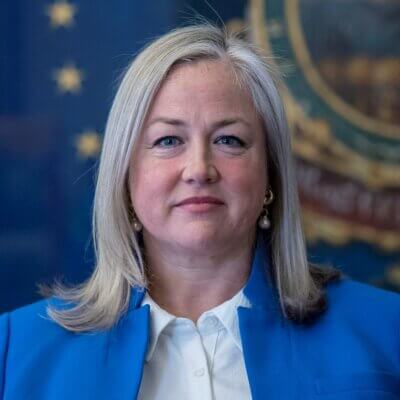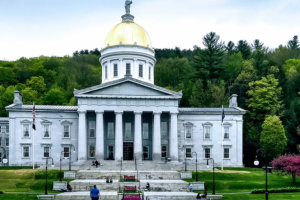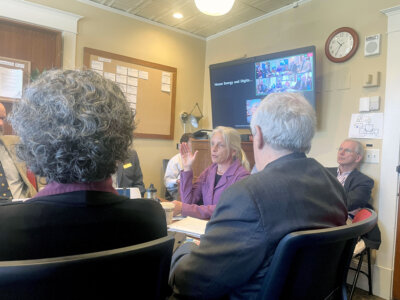The Legislature continues its work remotely
 The daffodils and hyacinths are finally blooming in the yard, the ground isn’t quite as soggy as it was last week, and May is upon us. Ironically, unemployment is at depression-level highs around the world as a result of the COVID-19 pandemic.
The daffodils and hyacinths are finally blooming in the yard, the ground isn’t quite as soggy as it was last week, and May is upon us. Ironically, unemployment is at depression-level highs around the world as a result of the COVID-19 pandemic.
Here in Vermont, the infection and hospitalization levels have been well-controlled as a result of steps taken early by Governor Phil Scott under the direction of Health Commissioner Dr. Mark Levine and State Epidemiologist Patsy Kelso. The curve has been flattened, allowing some easing of restrictions on outdoor work like landscaping and construction, as long as physical distancing and hygienic guidelines are observed. And the difficulty many Vermonters who tried to apply for unemployment benefits experienced should now be easing with additional personnel staffing the Department of Labor. Anyone still having a problem should contact me to see if I can help.
The legislature finally met in session using Zoom to approve the change to House Rules allowing us to vote remotely and to pass several key bills related to the health crisis. The change of rules required a 3/4 majority approval to take effect, and the vote was unanimous by the 147 legislators in attendance. With that approval, the House took up four bills pertaining to changes in the law for the duration of the COVID-19 emergency.
These bills provide for the administration of the Pandemic Unemployment Assistance program, which relates directly to independent contractors and others who are self-employed, permit remote execution of a will and notarization of documents without having to be in direct contact with other people, and provide our State Treasurer with tools to proactively manage State and local cash flow needs. We expect to hold more floor sessions in the weeks ahead. You can watch recordings of House meetings, and live floor sessions, by following our legislative page on YouTube.
This is an unusual session for many reasons, not the least of which is the uncertainty of the financial future. The economic fallout will certainly reduce revenues coming into the state from income and corporate taxes, sales and use taxes, and transportation fuel taxes. Since all sales and use taxes now go into the Education Fund, there will be less money to support the school budgets that have been passed. There is also a lot of uncertainty about what aid the federal government will provide to the states. As the legislature adapts to all this uncertainty, we will work to pass an interim budget that will get Vermont through the first quarter of the next fiscal year (FY21). The plan is to adjourn in late May or early June and return in August to pass a more complete budget for FY21.
In the meantime, the proposed closure of three Vermont State College campuses last week surprised everyone and created an immediate backlash. While the legislature in recent years provided less funding for the VSC system than requested, its costs have mounted, and the current crisis has exacerbated the deficit. The backlash by students, faculty, the public, the governor and legislators caused the proposal to be withdrawn. The legislative leadership of the House and Senate have committed to taking a serious look at VSC configuration as well as funding. VSC must provide an affordable and accessible opportunity for post-secondary students across Vermont to get a college degree.
I will be hosting a Virtual Town Hall via Zoom this Friday, May 1, at 6:00 p.m. Send me an email if you want to participate. I am happy to help in any way I can if you are having difficulty accessing state services. I welcome your emails or phone calls at (802) 233-5238. This article and others can be found at my website.
Related Stories
Popular Stories
If you enjoy The Charlotte News, please consider making a donation. Your gift will help us produce more stories like this. The majority of our budget comes from charitable contributions. Your gift helps sustain The Charlotte News, keeping it a free service for everyone in town. Thank you.
Andrew Zehner, Board Chair






